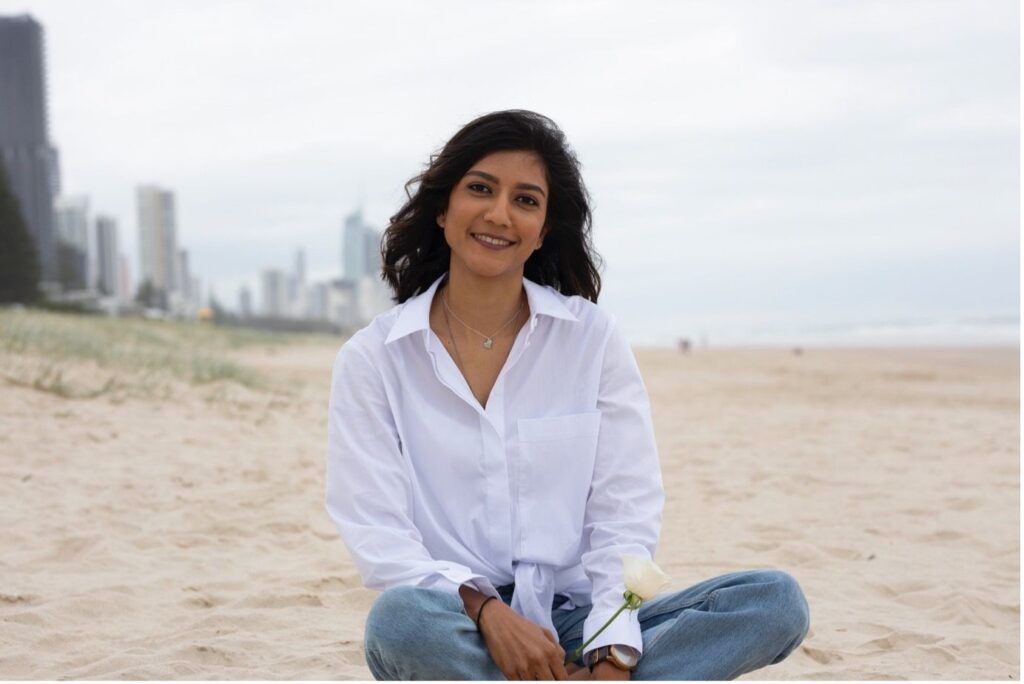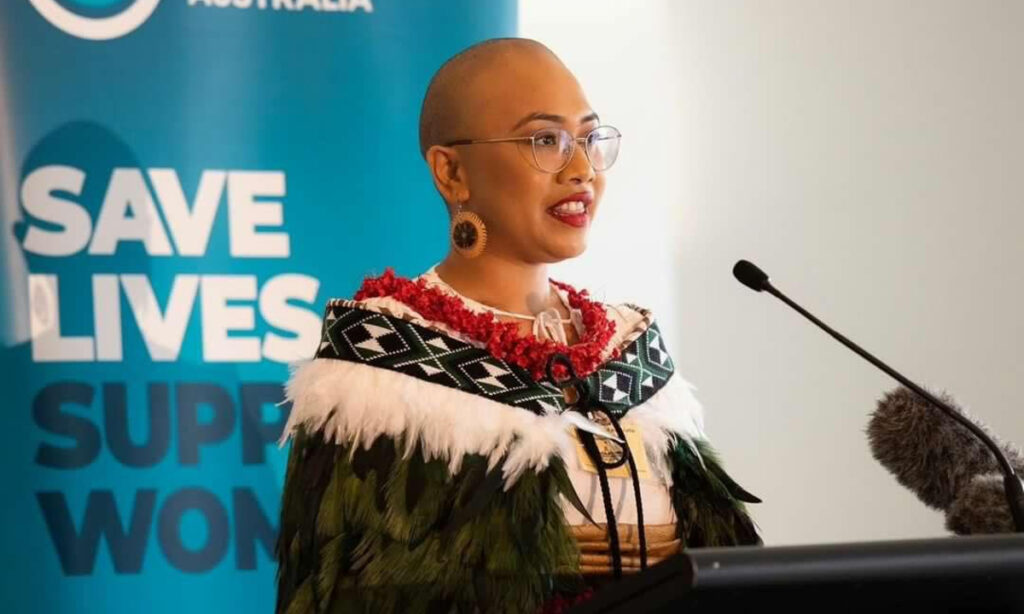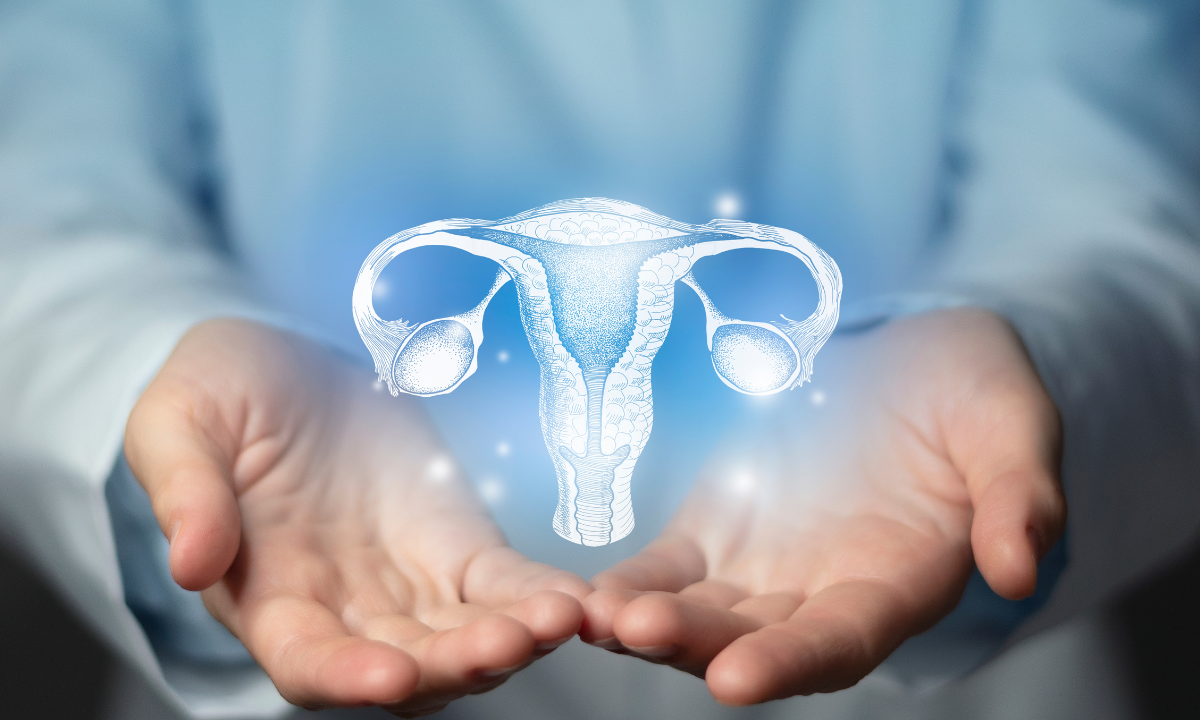Three researchers leading the fight against ovarian cancer will share new grant funding announced during Ovarian Cancer Awareness Month.
Gold Coast doctor Shabnam Gujadhur was only 30 years old when she was diagnosed with a rare form of ovarian cancer.
In March 2022, after experiencing symptoms for several weeks, she underwent surgery to remove an ovarian cyst.
“I remember being told ‘unfortunately, it’s not good news’” Dr Gujadhur said. “I was given the diagnosis of endometriosis and ovarian cancer, the latter two words which completely changed my life.”
“I was diagnosed with a stage 1 mixed dysgerminoma and gonadoblastoma. While I consider myself as one of those lucky ones, since my cancer was picked at an early stage, the next 12 months for me are critical due to the high risk of recurrence.”

More than 1800 Australian women were diagnosed with ovarian cancer in 2022, accounting for 2.5% of all new cancers diagnoses in females. Of those diagnosed, the five-year survival rate is only 49%.
“There is not one single day where I do not wake up, fearing that the cancer will return, fearing that I will need to take my right ovary out, fearing that I will not be able to conceive in the future,” Dr Gujadhur said.
The Ovarian Cancer Research Foundation (OCRF) shared Dr Gujadhur’s personal story with InSight+ after awarding new grants totalling almost $1.8 million to three researchers leading the fight against ovarian cancer. The research is focused on early detection and improved treatment options, areas that were found to be the major barriers to improving survival outcomes.
Professor Brian Gabrielli from Mater Research has been awarded $500 486 to lead a team from Mater and the University of Queensland to test a new treatment approach that increases the ability of a patient’s own immune system to recognise and attack tumour cells. The aim is to provide more effective and less toxic treatment than chemotherapy.
“If nothing else, if can we simply remove the pain you have to suffer even just being treated,” Professor Gabrielli said, “Even if we don’t improve treatment beyond the current chemotherapy survival rate … I reckon that’s a win.”
Associate Professor Jason Lee and his team from QIMR Berghofer Medical Research Institute have been awarded $852 343 to research increasing the survival rate of patients with ovarian cancer by focusing on circular RNAs as the foundations of an early detection test. The team is currently analysing the blood of patients who had aggressive ovarian cancer and searching for distinct circular RNA from the tumour itself. Their research intends to not only provide a method of early diagnosis but also provide an early indication if a patient in remission is likely to experience cancer recurrence.
“If some of the circular RNAs are highly expressed in ovarian cancer, then is it possible for us to develop a therapy to block that elevation? That could actually treat ovarian cancer or be hopeful as a prophylactic kind of preventative medicine,” Associate Professor Lee said.
Professor Michael Jennings and the team from Griffith University’s Institute for Glycomics have been awarded $444 203 to refine their understanding of a sugar-based biomarker called Neu5Gc found in blood and bodily fluids. They will be investigating whether the biomarker can be used to identify early warning signs of ovarian cancer.
“In previous work we have established that a sugar called Neu5Gc is expressed at elevated levels in serum at all stages of ovarian cancer, relative to cancer free controls,” Professor Jennings said. “However, the same sugar is also elevated in other cancers such as breast cancer and melanoma. Our study will use samples from a new cohort to analyse the elevated biomolecules that carry the Neu5Gc sugar in ovarian cancer to identify ovarian cancer specific Neu5Gc biomarkers.”
To mark Ovarian Cancer Awareness Month, the annual Teal Ribbon Parliamentary Breakfast was held at Parliament House in Canberra last Wednesday 8 February, attended by dignitaries including Assistant Minister for Health and Aged Care Ged Kearney and Leader of the Opposition Peter Dutton.
Attendees heard the moving story of Alisi Jack-Kaufusi, who was diagnosed with ovarian cancer at the age of 24 years.
“I grieved my life before cancer,” Ms Jack-Kaufusi said. “I grieved not being able to have my own biological children. I became very depressed as I had to give up my dream job at the age of 25. It wasn’t until I reached out to Ovarian Cancer Australia and was put in touch with their support team that my mental and emotional state began to improve.”

The OCRF held its annual Walk With Women event to raise money for research last weekend. The Mornington Peninsula community was invited to attend a local walk to raise funds, while the wider Australian community is being encouraged to hold their own fundraising walk in the month of February.

 more_vert
more_vert
I would like an update on referral of Ovarian cancer not now responding to Chemotherapy – for immunotherapy
Please, Researchers, examine the effect of having Mumps as a child, and being protected from getting ovarian cancer. It seems impossible but it is well documented, and the mechanisms have been established.